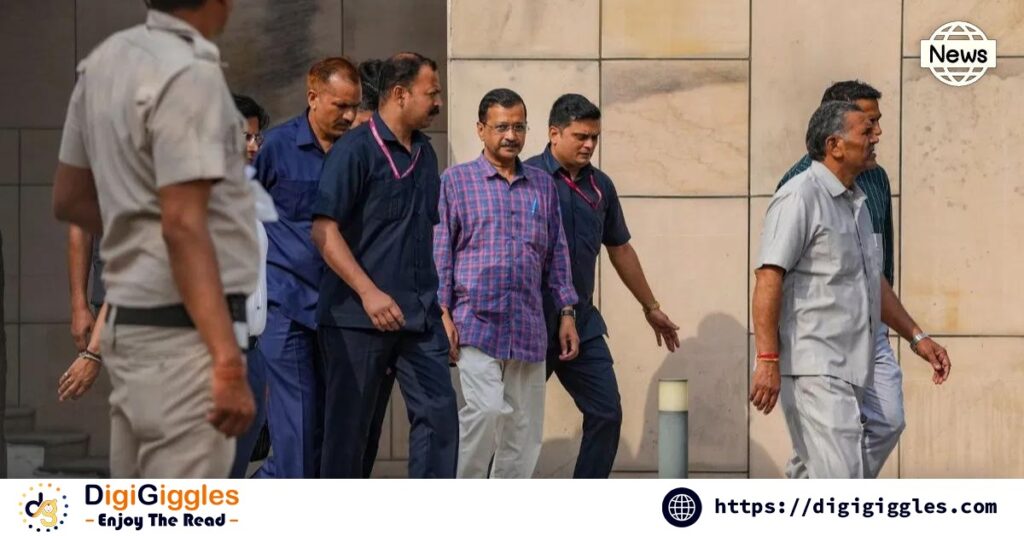
The Supreme Court of India is poised to deliver its verdict on a petition filed by Delhi Chief Minister Arvind Kejriwal, who is challenging his arrest by the Enforcement Directorate (ED) in connection with a money laundering case related to the now-scrapped excise policy. The verdict, reserved on May 17 by a two-judge bench comprising Justices Sanjiv Khanna and Dipankar Datta, will be delivered shortly. During the hearings, the Supreme Court had requested the ED to submit all relevant files and evidence. The bench emphasized the need to review the statements of witnesses recorded after the arrest of former Delhi Deputy Chief Minister Manish Sisodia, after the judgment denying bail to Sisodia, and before Kejriwal’s arrest. The court’s scrutiny aimed to understand the sequence of events and the basis for Kejriwal’s arrest.
Additional Solicitor General S V Raju informed the court that the ED had uncovered more evidence, including WhatsApp chats, which pointed to a hawala transaction. The bench questioned whether these details were included in the “grounds of arrest” provided to Kejriwal. Raju responded that the probe agency is not obliged to share all information with the accused, to which the bench retorted, “How will you not give reasons to believe? How will he challenge those reasons?” The ED has filed a comprehensive chargesheet in the Delhi liquor policy case, implicating Arvind Kejriwal in a Rs 100 crore kickback scheme. According to the chargesheet, Kejriwal was allegedly involved with members of the ‘South Group’ and others, including Vijay Nair, to receive kickbacks for providing undue benefits to private entities through a customized liquor policy. The probe agency claimed that Nair acted on behalf of senior AAP leaders, including Kejriwal.
In his defense, Chief Minister Kejriwal informed the ED that Vijay Nair was subordinate to Delhi Ministers Atishi and Saurabh Bhardwaj, and not directly under his supervision. Kejriwal asserted that he was not involved in any conspiracy related to the liquor policy. Kejriwal’s arrest by the ED on March 21 has been a significant development in the case, which alleges that AAP leaders, including Kejriwal and Sisodia, orchestrated a criminal conspiracy to create loopholes in the liquor policy to benefit specific liquor sellers. The central probe agency has argued that the policy was manipulated to favor certain private entities, resulting in substantial financial gains for the party.
The impending Supreme Court verdict is expected to have far-reaching implications for both Kejriwal’s political career and the ongoing investigations into the Delhi liquor policy case. As the legal battle intensifies, all eyes are on the apex court’s decision, which will determine the legality of Kejriwal’s arrest and potentially influence the future course of the case. This high-profile case has attracted widespread attention, highlighting the complexities of political and legal maneuvers in India’s governance. The Supreme Court’s ruling will be a crucial moment in this ongoing saga, providing clarity on the legal standing of the charges against Kejriwal and the conduct of the ED’s investigation.